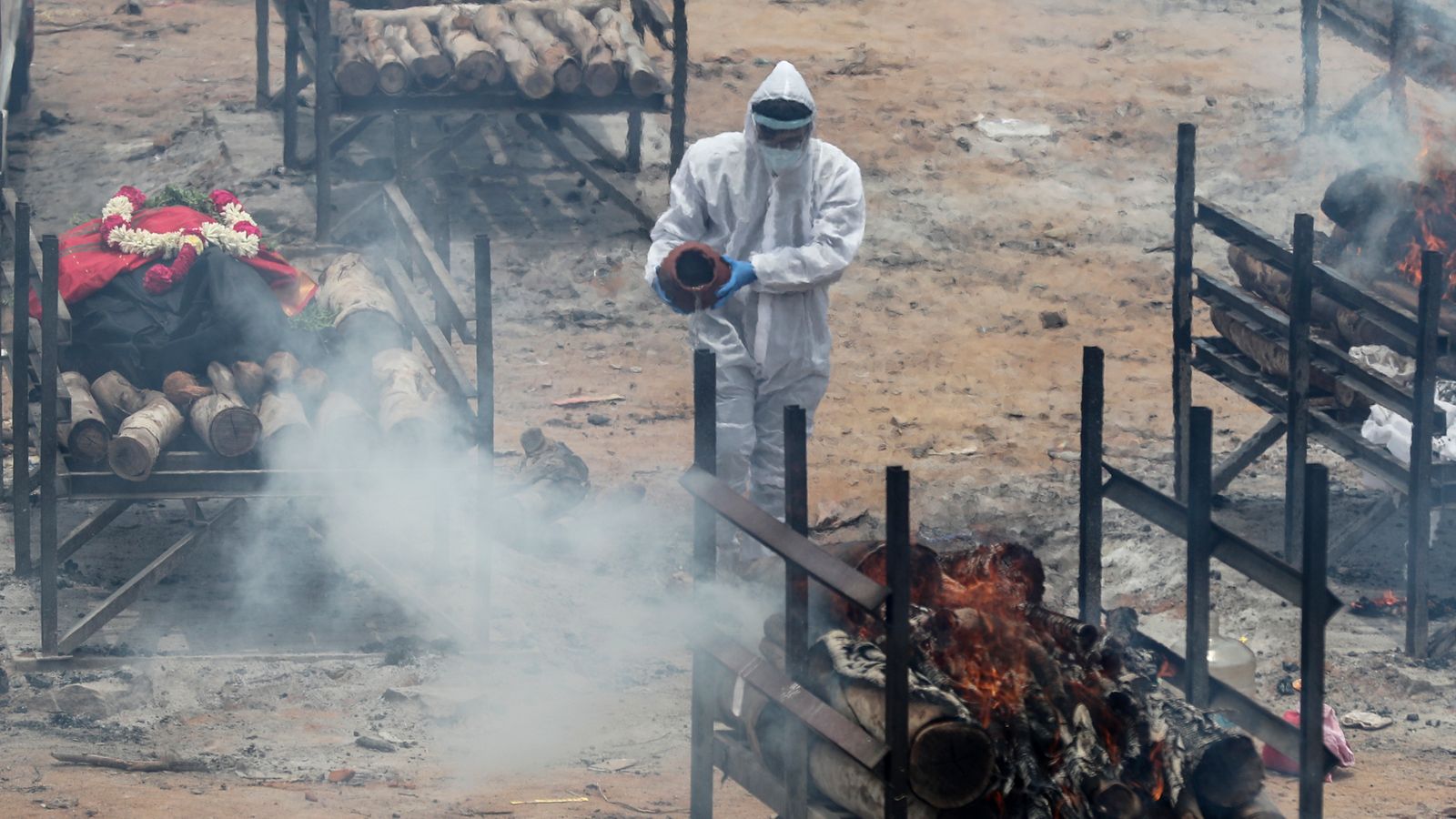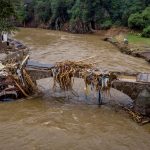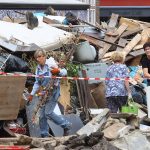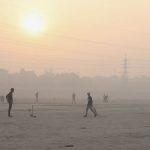Bodies of COVID-19 victims have washed up on riverbanks in India as the country endured its deadliest day of the pandemic so far.
Scores of corspes have been found on the banks of the holy Ganges river, as 4,205 people were declared dead from coronavirus yesterday.
Grieving relatives, their villages stripped of firewood, have been forced to simply place their loved ones in the water, rather than cremate them in traditional Hindu style.
Latest COVID-19 updates from the UK and across the world
The number of dead was a daily record and took the country’s total fatalities past a quarter of a million.
The number of infections rose by 348,421 in the 24 hours to Wednesday, carrying that tally past 23 million, the health ministry said.
Under severe pressure from new and deadlier variants of COVID-19, India’s health system has been overwhelmed during the second wave which began in February.
Many sufferers have been turned away as hospitals which, lacking beds, drugs and medical oxygen, have been unable to cope with the surge, with morgues similarly overstretched.
Victims often die without a doctor on hand to issue a death certificate.
India, with a population of 1.4 billion, accounts for half of cases and 30% of deaths worldwide, the World Health Organisation said in its latest weekly report.
Please use Chrome browser for a more accessible video player
Daily infections are rising in the countryside, rather than urban areas, where they have slowed after last month’s surge, experts say.
If there is good news anywhere, it’s that the infection curve may be showing early signs of flattening, according to top virologist Shahid Jameel.
He told the Indian Express newspaper: “We seem to be plateauing around 400,000 cases a day. It is still too early to say whether we have reached the peak.”
Areas where the infection rate is over 10% should remain locked down for another six to eight weeks, the head of the main Indian health agency said on Wednesday.
Dr Balram Bhargava, head of the Indian Council of Medical Research (ICMR), said: “If they come to 5% from 10% (positivity rate) we can open them, but that has to happen.
“That won’t happen in six-eight weeks, clearly.”
As for the hard-hit capital, he added: “If Delhi is opened tomorrow, it will be a disaster.”
The country’s vaccine rollout, meanwhile, has faltered as stocks failed to make it to the vaccination centres charged with inoculating everyone 18 years and older.






















